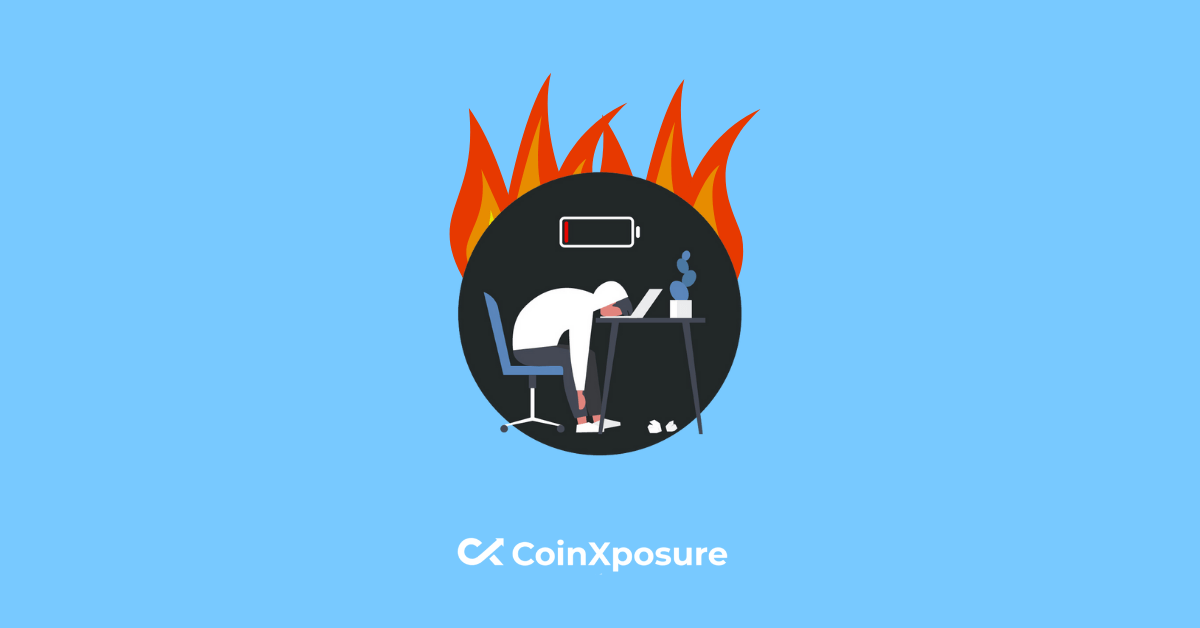
Overcoming Challenges and Burnout in a Web3 Professional Journey
Navigating a career in Web3, the decentralized web, promises innovation, excitement, and boundless opportunities. Yet, amidst this dynamic landscape, professionals often encounter many challenges that can lead to burnout.
From the breakneck pace of technological evolution to the complexities of regulatory frameworks and intense market competition, the journey in Web3 is not without its hurdles.
In this exploration, we explore strategies to overcome these challenges and burnout, ensuring sustainability and well-being in the Web3 professional journey.
Understanding the Challenges
In the realm of Web3, professionals face a unique set of hurdles that can impede progress and contribute to burnout.
Firstly, the rapid pace of technological advancements demands continuous learning and adaptation, putting pressure on individuals to stay abreast of the latest developments.
Additionally, the decentralized nature of Web3 introduces complexities in governance, interoperability, and security, adding layers of difficulty to projects and initiatives.
Moreover, regulatory uncertainties surrounding cryptocurrencies, blockchain, and decentralized finance (DeFi) pose legal and compliance challenges, requiring careful navigation.
Lastly, the competitive nature of the market, coupled with high expectations from stakeholders, intensifies the pressure on professionals to deliver results swiftly and effectively.
Understanding these challenges is crucial for devising strategies to mitigate their impact and foster resilience in adversity.
Signs and Symptoms of Burnout
Recognizing the signs and symptoms of burnout is essential for early intervention and prevention.
Physically, individuals may experience fatigue, headaches, and changes in appetite or sleep patterns.
Emotionally, burnout often manifests as increased cynicism, detachment, and a sense of disillusionment with work.
Behaviorally, individuals may exhibit decreased productivity, irritability, and a tendency to withdraw from social interactions.
These symptoms not only affect personal well-being but also harm job performance and overall quality of life.
By identifying these indicators, individuals can take proactive steps to address burnout and prioritize their mental health and well-being.
Strategies for Overcoming Challenges and Burnout
Here are some strategies for overcoming challenges and burnout:
- Prioritize self-care and mental health
- Continuously update skills and knowledge
- Foster a supportive network
- Break tasks into manageable chunks
- Advocate for a healthy work culture
Prioritize self-care and mental health
Establish boundaries between work and personal life to prevent overwork and burnout.
Practice mindfulness, meditation, or other stress-management techniques to reduce anxiety and improve well-being.
Continuously update skills and knowledge
Engage in ongoing learning and professional development to stay current with industry trends and advancements.
Stay informed about emerging technologies and best practices to enhance expertise and adaptability.
Foster a supportive network
Seek mentorship and guidance from experienced professionals who can offer insights and advice.
Build relationships with peers for collaboration, support, and sharing experiences.
Break tasks into manageable chunks
Set realistic goals and prioritize tasks to avoid feeling overwhelmed.
Delegate responsibilities when necessary to lighten the workload and maintain productivity.
Advocate for a healthy work culture
Encourage open communication and feedback within the team or organization to address concerns and promote a positive environment.
Promote work-life balance by supporting flexible schedules, remote work options, and time off to recharge.
By implementing these strategies, professionals can effectively navigate the challenges of the Web3 landscape while safeguarding against burnout.
Prioritizing self-care, continuous learning, building a strong support system, and advocating for a healthy work culture are key components of resilience and well-being in adversity.
Conclusion
In the fast-paced world of Web3, overcoming challenges and preventing burnout is essential for long-term success and well-being.
By prioritizing self-care, continuous learning, and building a supportive network, professionals can navigate the complexities of this evolving landscape with resilience and confidence.
By breaking tasks into manageable chunks and advocating for a healthy work culture, individuals can mitigate the risk of burnout and foster a sustainable and fulfilling career in Web3.
Embracing these strategies enhances individual performance and contributes to a thriving and resilient community of professionals driving innovation in the decentralized web.





